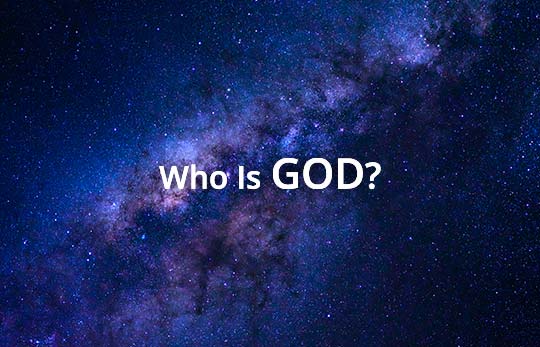
And understand that I am He. Before Me there was no God formed, and there will be none after Me. “I, even I, am the LORD; and there is no savior besides Me.” Isaiah 43:10b-11 (NASB)
Athens was a center of religious activity in the ancient world. Today one can find the ruins of some of Athen’s once spectacular temples. The ruins of the temples of the goddess Athena, the Furies and the temple of Theseus can be seen. Athens was known as the university city of the Roman world. They were very educated and yet, very religious. The historian Favlius Josephus called them the most pious of the Greeks. Therefore, it is not surprising that Acts 17:22-28 says they had an altar dedicated to the “unknown God.” In fact, there were many altars in Athens to unknown gods. So when the apostle Paul met some of the men of Athens, he said they were “very religious” (Acts 17:22). Then Paul told them about the God they did not know. Who is God? According to Acts 17:24-27, Paul told them there are eight things that are true about the “unknown God.” What are those eight truths about God?
God Is A Trinity
Who is the God of this universe? Is there anyone like Him? The book of Isaiah describes our God. Isaiah 43:1 states that the God of the Bible is speaking. He tells us that He is the one who created us. In Isaiah 43:10 we discover that no other god existed before Him, and no other god will exist after Him. That is, there is no GOD but Himself. This eliminates the idea of many gods. What do the following verses reveal about GOD?
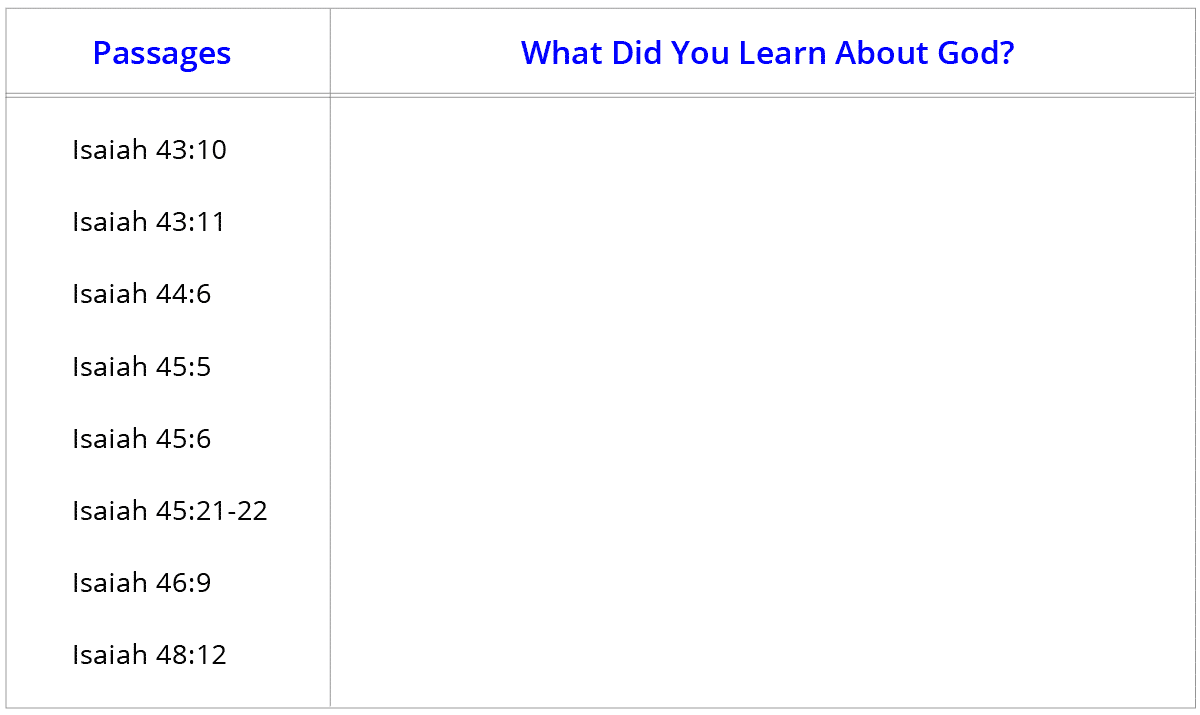
Yahweh GOD has been speaking since Isaiah 43:1, and He still speaks in Isaiah 48:12 when He says “I am the first and the last.” This reminds us of Isaiah 44:6 where He had already made the same statement. So, GOD has been declaring that He is the only God since Isaiah 43:10, and there is no other God. There is no one even like Him. Now notice that Isaiah 48:16 says,
Come near to Me, listen to this:
From the first I have not spoken in secret,
From the time it took place, I was there.
And now the Lord GOD has sent Me, and His Spirit.
Isaiah 48:16 (NASB)
Who is the “Me” in this verse? Who has been speaking since Isaiah 43:10?
In the last part of this verse, we are told that “Me” was sent by the Lord GOD or Yahweh. We are also told that Yahweh also sent the Holy Spirit. Now remember that the “Me” has been saying there is only one God! “Me” is the only God! So, how can Yahweh send Yahweh, if “Me” is the only God? The answer is that the “Me” is Christ. God is a trinity. Our God is God the Father, God the Son, and God the Holy Spirit. God is one, yet is revealed in three persons.
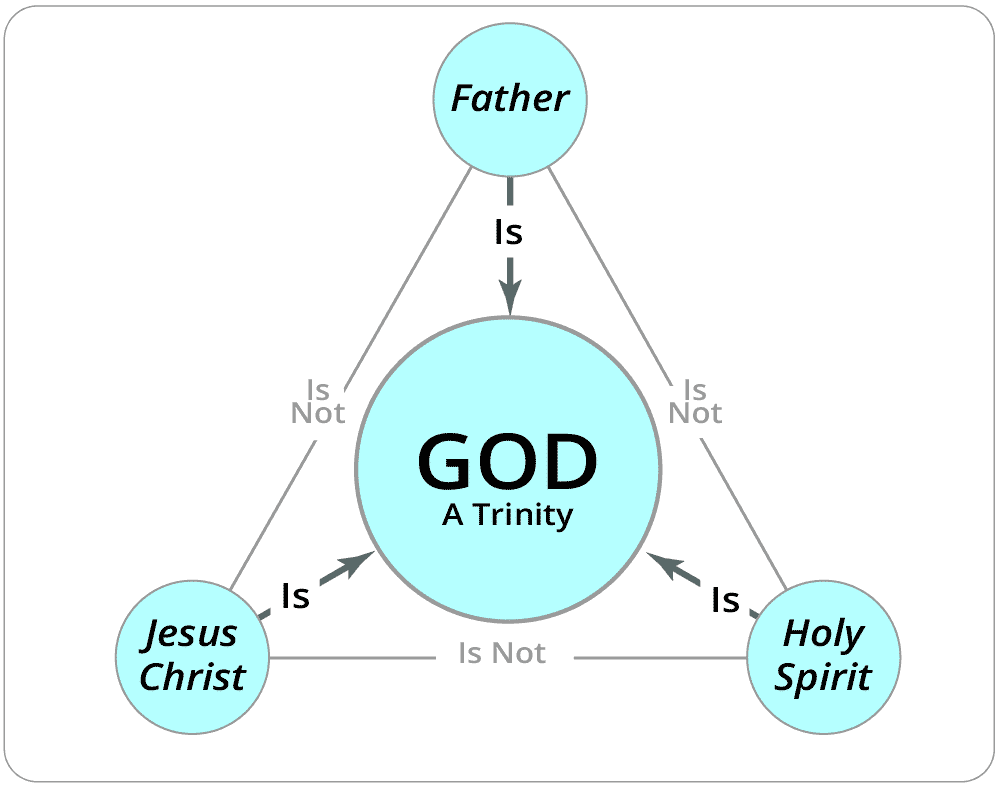
Members of the Trinity
The New Testament reveals that Jesus is God (John 10:31-33; 20:28; Titus 2:13; 1 John 5:20), and the Holy Spirit is God (Acts 5:3-4). God is not three Gods. In Genesis 1:26 we are told that God referred to Himself as, “Let us . . .” Yet in Deuteronomy 6:4 we are told,
The LORD is our God, the LORD is one! (NASB) Deuteronomy 6:4
This is a wonderful verse because the Hebrew word for LORD is Jehovah, and the Hebrew word for God is ELOHIM. ELOHIM is plural. This teaches the same truth that we discovered in the book of Isaiah. The “UNKNOWN GOD” is the only God, and yet He is three persons. He is a plural-one.
Both the Old and New Testaments teach that God is a Trinity without using the term. But that does not mean the concept is not in the Bible. The New Testament refers to the three persons of the Godhead together in several passages (Matthew 3:11; 28:19; 2 Corinthians 13:14; Ephesians 2:18 and 1 Peter 1:2).
Describe what happened in Matthew 3:16-17.
Illustrations of the Trinity
There are many illustrations of the Trinity. Some teach that the trinity is like an egg. The egg has a yoke, a white section, and a shell. They say that is like the trinity. Another example is called the triple point of water. The triple point of water occurs when water is simultaneously liquid, gas, and a solid or ice. This occurs at a temperature of 0.1 degrees C and a pressure of 0.006 atm[1]. It is the best illustration because at that point, water is liquid, gas, and solid all at the same time. Yet, even this example falls short because Scripture teaches that God the Son is identical in essence to God the Father (Philippians 2:6-8; Colossians 2:9). The Trinity is a mystery we do not understand. We should not be surprised that our Creator is beyond our understanding. We should not think that we can ever completely understand God. What does Psalm 50:21 reveal about our view of God?
In what two ways are you different than God, according to Isaiah 55:8-9?
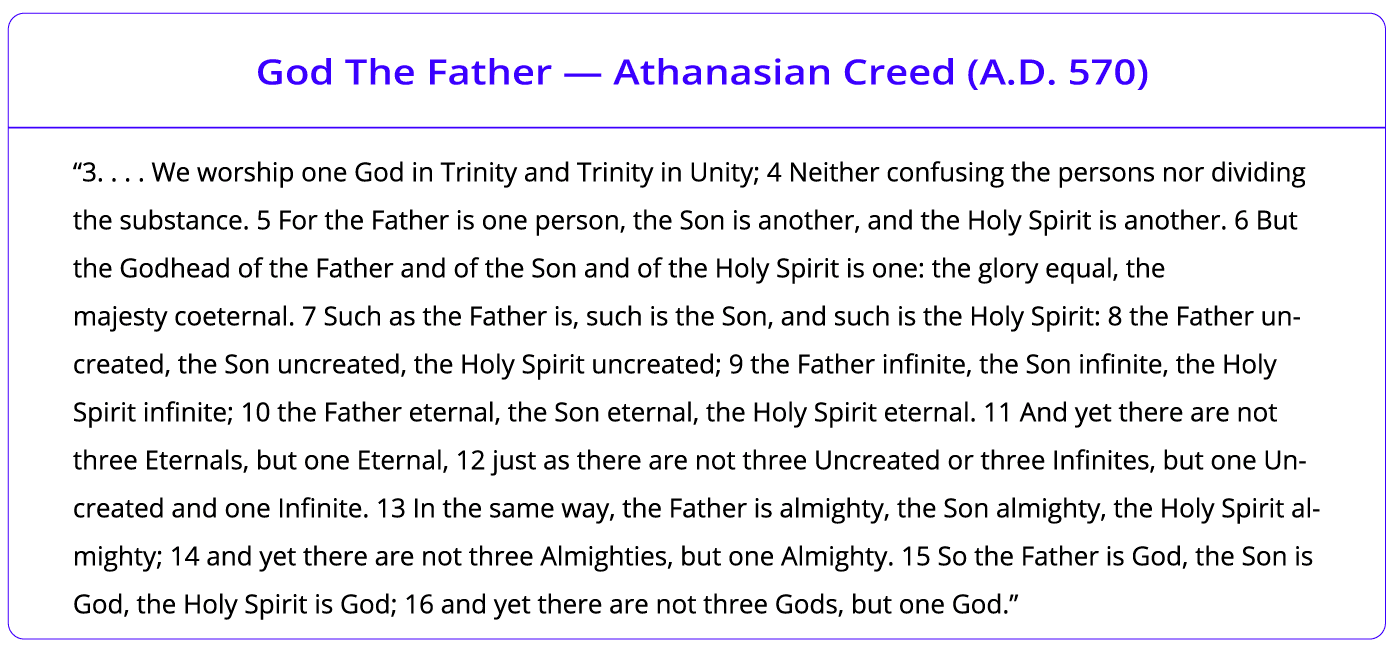
Attributes of God
While the concept of the trinity may seem to be a difficult concept, there are other characteristics about God that are equally difficult to understand. There is more mystery about God than that He is a trinity. We are going to discover some characteristics about Him. Therefore, read the verses below and then answer the questions.
1. John 5:26 — Does this verse teach that God the Father and Christ need air, water, and food in order to live? Also, what is the definition of aesity?
2. Psalm 90:2 and Isaiah 43:13 — According to these verses, how long has God existed and how long will He exist? Why do these verses reveal that Jesus can keep His promise in Matthew 28:20?
3. Malachi 3:6 — This verse refers to God’s nature and characteristics. Can God’s character change? That is, can God stop loving and caring about you? Why?
4. Psalms 139:1-6 — What does God know about you? Does God know all of your sins? Does God know you are a Christian?
5. Psalms 139:7-10 — Is it possible that you could be lost somewhere and God will not know your location?
6. Luke 1:37 — What things can God not do?
7. Exodus 15:11 — Write this verse down. Then write out 1 Peter 1:16. Then answer this question, “What does God want you to change?”
8. Isaiah 30:18 — Write this verse down. Does “justice” mean that God is not fair sometimes and make immoral decisions about people?
9. John 3:16 and Romans 5:8— What do these verses reveal about God, and do you think God loves you? Why?
10. Numbers 23:19 and Psalm 31:5 — What do both verses reveal about God? So, can we trust God that if we believe in Christ, He will forgive our sins and give us eternal life?
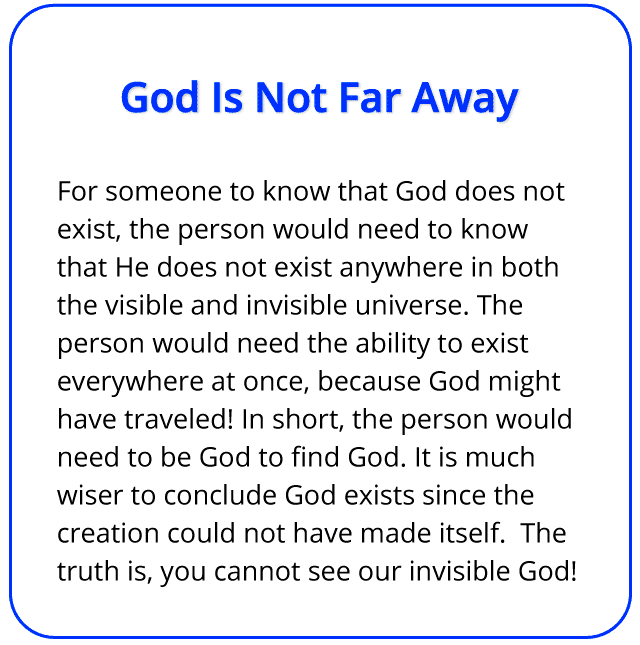
Conclusion
God is unbelievable. Knowing God is a lifetime long adventure for some of us. We first start to learn about God when we start loving God. We want to know Him. In Psalm 27:8, King David said, “My face desires to seek His face! Your face, LORD, I will seek.” Do you desire to seek His face, to know Him as a friend? David desired to know God face-to-face.
Things To Ponder
1. How has God been revealed to us according to Romans 1:20?
2. What is God according to John 4:24 and Colossians 1:15?
3. How would you explain the Trinity to someone?
4. Someone once asked, “Can God make a rock so big that He cannot move it?” How does Job 11:7 answer the question?
5. Do you think we can know everything about God (Romans 11:33-34)?
6. Some people say that they have seen God the Father or Jesus. What would happen if they saw God according to Exodus 33:20?
7. Exodus 33:20 reveals that God is very different from us. Why?
8. What characteristic of God is revealed in Ephesians 2:4-5 and 1 Peter 1:3?
9. What can the followers of Jesus look forward to in heaven (1 Peter 1:8)?
10. Name four ways in which God is different from us. In what ways are you like God?
Reference:
1. Triple Point of Water. university of California Santa Cruz. (ucscphysicsdemo.sites.ucsc.edu/physics-5b6b-demos/triple-point-of-water/).
Suggested Links:
Solid Roots Discipleship SeriesIntroduction To Solid Roots
What Is The Bible? – revelation, inspiration, and inerrancy
Overview of the Books of the Bible – themes and descriptions
How to Study the Bible Step-by-Step
What is the Trinity?
Jesus Is God
What is the Athanasian Creed of A.D. 570? – Symbolum Quicunque